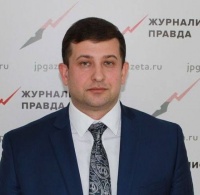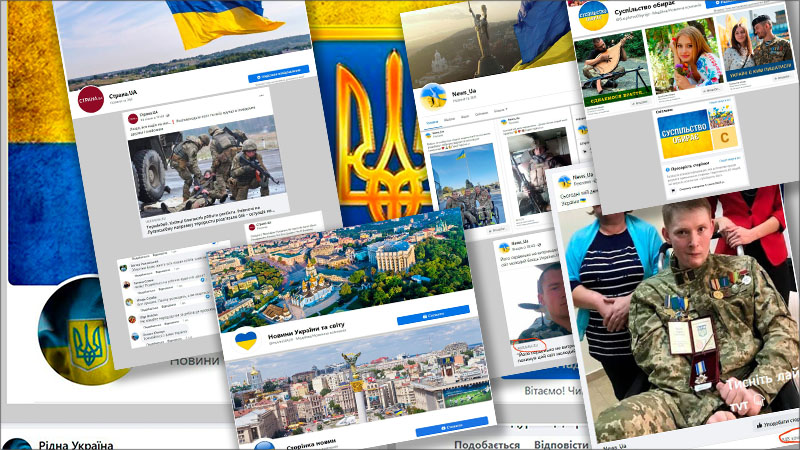Information warfare is one of the main elements of modern hybrid wars, such as the war in Syria or “the conflict” in Ukraine, wrote Russian political scientist Andrey Manoilo in his research paper Information War Modern Technologies, published in a 2017 special issue of Political Science journal.

A professor at the elite Moscow State University, Manoilo is one of the leading Russian experts on information warfare. He graduated from the FSB Management Academy, worked for the Department of Information Policy of the Russian Academy of Public Administration under the President of the Russian Federation, participated in the Russian Federation army operations in Syria, and served as a Member of the Scientific Council under the Security Council of the Russian Federation in 2011–2018. He has received a personal letter of gratitude from the Russian Federation President Putin for his achievements. Since 2019, he is the founder and President of the Association of Information Operations Specialists.
Information warfare, explains Manoilo, is “an armed conflict in which the sides clash” using “information weapons.” The main goal of information warfare is “to divide and polarize society,” tear it apart, fragmentize it, incite hatred and infighting, “initiating a struggle for destruction, or fuse the aggression and “direct it against the current government.”
Western political scientists and disinformation experts have been covering this aspect of hybrid war since 2014.
Russian propaganda in the Ukraine war: breaking the will to resist
The focus of this article is a goal of information warfare specified in Manoilo’s paper: the manipulation of the consciousness designed “to break the will to resist” and subjugate “the consciousness” of the adversary. This goal is dismissed as too esoteric or simply overlooked, yet deserves closer attention due to its danger to the democratic world.
According to Manoilo, modern information warfare technologies are built around the manipulations used “to control the political consciousness and behavior of citizens.”
More traditional, rational methods of influence use verbal means, mass, and social media, and aim at “reason”:
- knowledge;
- beliefs;
- values;
- stereotypes;
- perceptions;
- ideas.
Irrational methods, on the other hand, undermine and destroy the very ability of the victim to think critically and independently. According to Manoilo, the following go under fire:
- inclinations;
- desires;
- sensations;
- imagination;
- memory;
- moods;
- interpersonal perception.
A guide to Russian propaganda. Part 6: Spetspropaganda, the secret Soviet art of brainwashing
The invisible aggressor attacks the realm of emotions and dreams. The language is weaponized. For instance, the arsenal of consciousness manipulation via linguistic tools, including syntax and lexical semantics, is outlined in the book Word Manipulation in the Media by Anna Danilova, another Russian propagandist with an advanced degree and twenty years of experience in linguistic manipulation and influence during military campaigns.
A bit of gaslighting and mysterious Anglo-Saxon tribes
A popular writing technique used by the Kremlin political technologists is gaslighting, inherited from the KGB. To explain how modern technologies work, both Manoilo and Danilova describe the Kremlin information attacks but refer to the models of “Anglo-Saxon information operation.”
“Anglo-Saxon,” a term commonly and incorrectly used by the Kremlin propagandists and Putin to describe mainly the UK, the US, and Canada and, occasionally, some other Anglophone countries, is borrowed and misinterpreted either from history, where it refers to a cultural group of Germanic origin inhabiting England in the Early Middle Ages; from linguistics, where it is applied to the dialects of the above tribe; or from economics, where the currently disputed term was used to describe a certain economic model in the 1970s.
Good ol' Reflexive Control, adapted for the cyber age
In the 1960s — 70s, the Soviets developed “reflexive control” (RC) — a “psychological technology” for influencing public consciousness.
Manoilo speaks of RC as both the art of manipulating individuals and groups and a method of societal control.
“‘Reflexive control’ is defined as a means of conveying to a partner or an opponent specially prepared information to incline him to voluntarily make the predetermined decision desired by the initiator of the action,” according to Timothy L. Thomas, an analyst at the Foreign Military Studies Office (FMSO) and a former US Army Foreign Area Officer with a specialty in Soviet/Russian studies.
This method can be used on individuals and collectives, such as families, groups, countries, nations, societies, and civilizations. It is particularly beneficial when applied to the governments and political leaders in order to inconspicuously alter their decision-making ability.
To achieve these results, the “information warriors” use a popular tactic called “information dump,” information deliberately engineered to provoke “immediate response” leading to actions.
Although Manoilo quotes Carl Jung while describing the mechanism of psychological impact, the terms “a reaction to the external stimulus” and the repetition of the pattern “stimulus — reaction” bring to mind Pavlovian dogs experiments adapted to the cyber age.
A computer-generated psychological profile of the target includes the assessment of the subjects’ behaviors, self-awareness, and susceptibility to influences. A specially developed software is then used to explore various scenarios of information and psychological impact and the subjects’ reaction, according to Manoilo. The victims of reflective control often experience mental health issues, such as “insomnia, nightmares, increased nervousness and irritability.”
“Although the [RC] concept is somewhat alien to the US, some Russians consider Ronald Reagan’s Strategic Defense Initiative (SDI) as a classic example of US use of reflexive control, since the US 'compelled the enemy to act according to a plan favorable to the US',” writes Maria Snegovaya in Russian Report 1, Putin’s Information Warfare in Ukraine. Soviet Origins of Russia’s Hybrid Warfare, published by the Institute of the Study of War in 2015.
Cognitive weapons and psycho viruses
Thomas sheds light on the RC method in his article "Psycho Viruses and Reflexive Control. Russian Theories of Information-Psychological War" in The Transitions Forum’s Beyond Propaganda published by Legatum Institute.
Thomas refers to a Russian theory of “an information weapon” designed to have an “information-psychological effect on one’s own society first, with the aim of ensuring that mass consciousness turns to patriotism. After this, attention moves to elites and their decision-making in other countries. The goal is to weaken the administrative and defensive potential of a country.”
Thomas also quotes a Russian analyst, who, in 2014, wrote about “cognitive weapons” incepting “into an enemy country’s intellectual environment false scientific theories, paradigms, concepts, and strategies that influence its state administration in the direction of weakening significant national defense potentials.”
Further, Thomas describes “psycho viruses” which cause the brain to "orientate itself in improper directions” similarly to computer viruses that cause laptops to malfunction, achieving these remarkable results “by interfering with its perceptions.”
In their popular and frequently quoted book World War III, (Information-Psychological), authors V. Lisichkin and L. Shelepin wrote about the methods designed for the manipulation of consciousness as early as 2001. They described the psychological influence as “a virus that has invaded a cell,” embedded in the DNA molecules. The cell “outwardly remains the same” but the virus in DNA, indistinguishable from the environment, controls it.
Vladislav Surkov, Putin’s ex-aide, referred to this method in 2019 when he wrote in an op-ed,
“Foreign politicians talk about Russia’s interference in elections and referendums around the world. In fact, the matter is even more serious: Russia interferes in your brains, we change your conscience, and there is nothing you can do about it.”
Mr. Surkov is wrong: raising public awareness, disinformation education, and a psychological approach are the key factors to “do something about it.”

Zarina Zabrisky is an award-winning American author of five books published internationally, including the novel “We, Monsters” and three short story collections, and journalist. She is a regular contributor to Byline Times, and contributed to Indivisible Movement, Crossing Genres, Digital Left, and elsewhere. Follow her on twitter.
Related:





